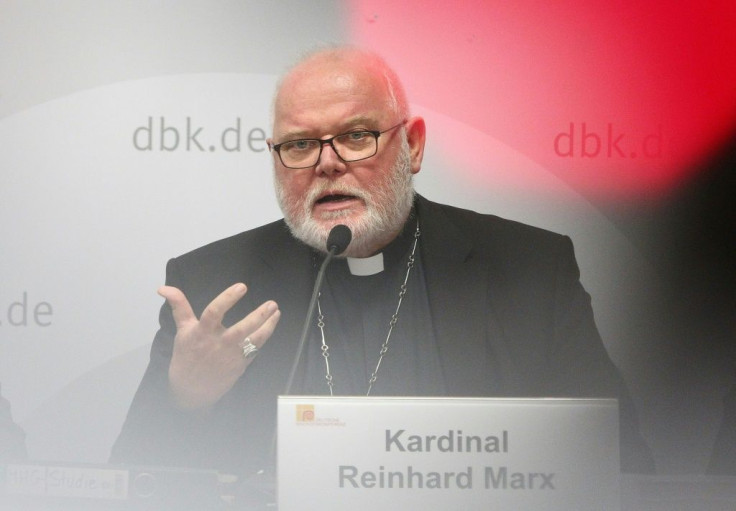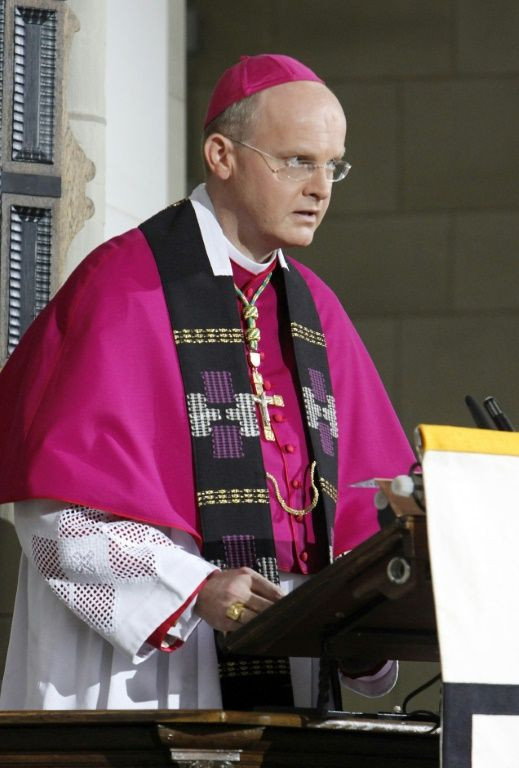Germany's Under-fire Catholic Church Seeks New Leader

German bishops began key talks on Monday that will see them choose a new leader to steer the country's Catholic Church through a controversial reforms process and settle compensation demands from sexual abuse victims.
The four-day episcopal gathering in the western city of Mainz comes at a time of fierce debate about how to modernise Germany's Catholic Church, pitting conservative bishops against more progressive ones.
Cardinal Reinhard Marx, a driving force behind efforts to renew the under-fire Church, last month unexpectedly announced he would not seek another six-year term as head of the German Bishops' Conference, saying he was too old at 66.
The several dozen bishops attending the annual general assembly will choose his successor in a secret vote on Tuesday, although no clear frontrunner has emerged.
Besides confronting calls to relax the rules on priestly celibacy and the roles of women in the clergy, the new chairman will have to deal with the Church's sexual abuse baggage.
Stephan Ackermann, the bishop charged with addressing the historic child abuse scandal, recently said he expected a decision "in the coming months" about financial compensation for survivors.
In his opening address in Mainz, Marx said he saw an opportunity for "a very concrete proposal" to be put forward at the Bishops' Conference.
More than a decade after the first abuse revelations emerged in Germany, victims are losing patience.
"There's no reason to wait any longer," the Eckiger Tisch victims' group said, calling for a resolution this year.
The group has proposed a one-off sum of around 300,000 euros ($330,000) per person, or the creation of a fund paid for by the Church but run by independent overseers.
Several high-ranking Church officials have rejected the proposals as too costly.
A study commissioned by the German Bishops' Conference and released in 2018 showed that 1,670 clergymen had committed some form of sexual attack against 3,677 minors, mostly boys, between 1946 and 2014.
The revelations, which mirror paedophile scandals in Australia, Chile, France, Ireland and the United States, prompted Cardinal Marx to apologise on behalf of the German Catholic Church.

The Church currently pays victims an average sum of 5,000 euros "in recognition of their suffering", as well as covering their therapy fees.
"It's not about recognition. It's about compensation for the damage that's been done to the lives of thousands of people," said Matthias Katsch from the Eckiger Tisch.
At 23 million followers, the Catholic Church remains Germany's biggest religious community. But its pews are increasingly empty on Sundays, and it is struggling to recruit new priests.
Hoping to renew itself and regain the public's trust, the German Church recently embarked on two years of discussions tackling the institution's most controversial themes, including the child abuse crisis.
The project, known as the synodal path, will also debate whether to end celibacy and allow priests to marry, and whether women should be ordained.
Traditionalists within the Church have already voiced strong opposition to such changes, chief among them the influential Cardinal Rainer Maria Woelki of Cologne.
Critics of the reform push also say such decisions should come from the Vatican, and not from Catholic leaders in Germany.
Pope Francis recently disappointed progressives by rejecting a proposal to allow married men to become priests in remote Amazon regions, to counter a shortage of clerics.
He also stopped short of allowing women to be ordained as deacons in the region, instead calling for women and lay people to become more involved.
Catholic women's associations in Germany urged bishops on Monday to give women more responsibility in clerical roles.
"Women are not second class Christians," said Edeltraud Hann of the League of German Catholic Women (KDFB).
One of the candidates tipped as the next leader of Germany's Catholics, Bishop Franz-Josef Overbeck of Essen, used his New Year's sermon to urge the 2,000-year-old Church to choose "a fresh start".
The limitations placed on women in the Church are "increasingly inacceptable" to many people, he warned, while "quite a few priests" find celibacy "a heavy burden".
© Copyright AFP 2024. All rights reserved.





















